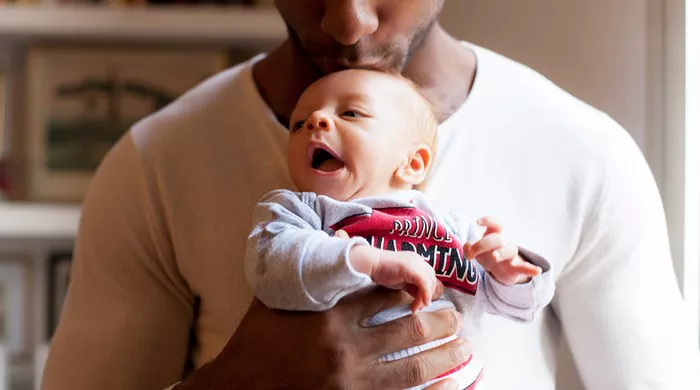Newborn hiccups are a common phenomenon that often leaves new parents concerned and searching for solutions. While hiccups in adults can be annoying, in infants, they are generally harmless and a normal part of development. Understanding the causes, preventive measures, and ways to alleviate hiccups can help parents feel more at ease. This comprehensive guide will delve into why newborns get hiccups, how to prevent them, and what to do when they occur.
What Causes Newborn Hiccups?
The Mechanics of Hiccups
Hiccups are caused by involuntary contractions of the diaphragm, a muscle located at the base of the lungs. When the diaphragm contracts suddenly, the vocal cords close quickly, producing the characteristic “hic” sound. In newborns, the diaphragm is still developing and is more prone to these contractions.
Common Triggers
Several factors can trigger hiccups in newborns, including:
Feeding: Overfeeding, eating too quickly, or swallowing air while feeding can lead to hiccups.
Temperature Changes: Sudden changes in stomach temperature, such as drinking cold milk, can trigger hiccups.
Excitement or Stress: High levels of excitement or stress can also cause the diaphragm to contract.
Are Newborn Hiccups Harmful?
Normal Developmental Stage
Hiccups are typically not harmful and are considered a normal developmental stage for newborns. They are more of a nuisance than a cause for concern.
When to Seek Medical Advice
While hiccups are generally harmless, persistent hiccups that last for hours or are accompanied by other symptoms like vomiting or difficulty breathing may warrant medical attention. If you are ever in doubt, consult your pediatrician to rule out any underlying issues.
Preventing Newborn Hiccups
Feeding Techniques
Proper feeding techniques can help prevent hiccups:
Pacing Feedings: Slow down the feeding process to allow your baby to digest the milk gradually.
Burping Frequently: Burp your baby after every feeding or even during feedings to release any trapped air in the stomach.
Upright Position: Hold your baby in an upright position while feeding to reduce the amount of air swallowed.
Monitor Feeding Amounts
Avoid overfeeding by keeping track of how much your baby is eating. Smaller, more frequent feedings can be beneficial in preventing hiccups.
Temperature Regulation
Maintain a comfortable feeding environment and avoid sudden temperature changes. If you’re feeding your baby breast milk or formula, ensure it is at a consistent, warm temperature.
Alleviating Newborn Hiccups
Patience and Calm
Most of the time, hiccups will resolve on their own within a few minutes. Remain calm and patient, as your baby will sense your anxiety.
Burping
If your baby has hiccups during feeding, stop and try to burp them. This can help release any trapped air that may be causing the hiccups.
Gripe Water
Some parents find that giving their baby gripe water, a natural remedy made with herbs, can help alleviate hiccups. Always consult your pediatrician before trying any new remedies.
Pacifier
Offering a pacifier can help relax the diaphragm and may stop the hiccups.
Gentle Rubbing
Gently rub your baby’s back in a circular motion. This can help relax the diaphragm and ease the hiccups.
When to Worry About Hiccups
Persistent Hiccups
If your baby’s hiccups last for more than a few hours or occur frequently over several days, consult your pediatrician. Persistent hiccups can sometimes indicate an underlying medical issue.
Associated Symptoms
If hiccups are accompanied by other symptoms such as vomiting, lethargy, or difficulty breathing, seek medical advice immediately.
See Also: What Is Pathological Jaundice in Newborn?
Myths and Facts About Newborn Hiccups
Myth: Hiccups Are Always a Sign of Reflux
Fact: While hiccups can be associated with gastroesophageal reflux (GER), they are not always indicative of this condition. Hiccups can occur without any underlying health issues.
Myth: Holding Your Baby Upside Down Stops Hiccups
Fact: This method is not only ineffective but also potentially dangerous. Safe and gentle methods like burping or using a pacifier are more appropriate.
Myth: Hiccups Cause Pain
Fact: Hiccups do not cause pain or discomfort in newborns. They are simply a natural reflex that babies outgrow over time.
Supporting Your Newborn Through Hiccups
Creating a Calm Environment
Keeping a calm and soothing environment can help reduce the frequency of hiccups. Loud noises and overstimulation can contribute to hiccups in sensitive infants.
Routine and Consistency
Establishing a consistent feeding routine can help minimize hiccups. Feeding your baby at regular intervals and avoiding overfeeding can make a significant difference.
Understanding Your Baby’s Cues
Learn to recognize your baby’s hunger and fullness cues. This can prevent overfeeding and reduce the likelihood of hiccups.
Conclusion
Newborn hiccups are a common and generally harmless occurrence that many parents experience. Understanding the causes, preventive measures, and effective ways to alleviate hiccups can help you manage this natural reflex with confidence. Remember, while hiccups are usually nothing to worry about, persistent or accompanied symptoms should be discussed with your pediatrician. By adopting proper feeding techniques and creating a calm environment, you can minimize the frequency of hiccups and ensure your newborn’s comfort.


